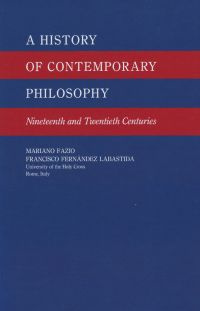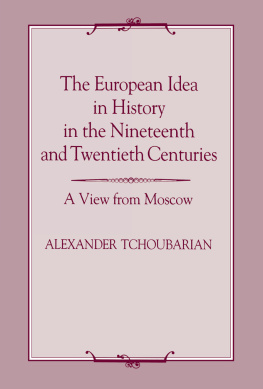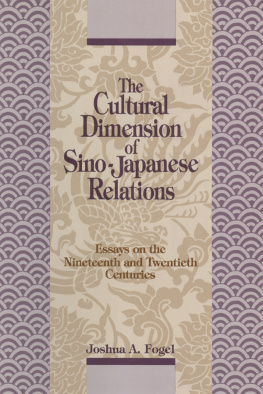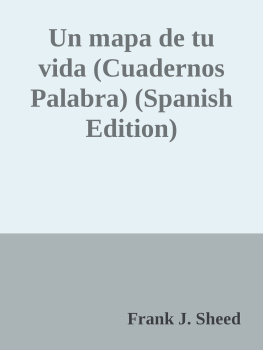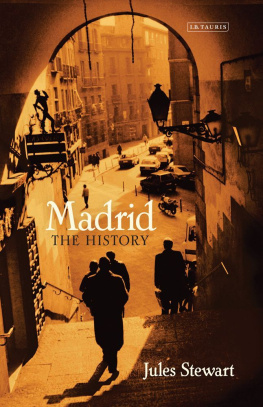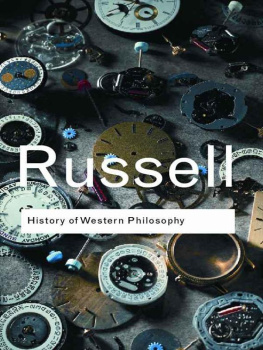Mariano Fazio - A History of Contemporary Philosophy, Nineteenth and Twentieth Centuries
Here you can read online Mariano Fazio - A History of Contemporary Philosophy, Nineteenth and Twentieth Centuries full text of the book (entire story) in english for free. Download pdf and epub, get meaning, cover and reviews about this ebook. year: 2012, publisher: Scepter C2011, genre: Science. Description of the work, (preface) as well as reviews are available. Best literature library LitArk.com created for fans of good reading and offers a wide selection of genres:
Romance novel
Science fiction
Adventure
Detective
Science
History
Home and family
Prose
Art
Politics
Computer
Non-fiction
Religion
Business
Children
Humor
Choose a favorite category and find really read worthwhile books. Enjoy immersion in the world of imagination, feel the emotions of the characters or learn something new for yourself, make an fascinating discovery.
- Book:A History of Contemporary Philosophy, Nineteenth and Twentieth Centuries
- Author:
- Publisher:Scepter C2011
- Genre:
- Year:2012
- Rating:5 / 5
- Favourites:Add to favourites
- Your mark:
- 100
- 1
- 2
- 3
- 4
- 5
A History of Contemporary Philosophy, Nineteenth and Twentieth Centuries: summary, description and annotation
We offer to read an annotation, description, summary or preface (depends on what the author of the book "A History of Contemporary Philosophy, Nineteenth and Twentieth Centuries" wrote himself). If you haven't found the necessary information about the book — write in the comments, we will try to find it.
Mariano Fazio: author's other books
Who wrote A History of Contemporary Philosophy, Nineteenth and Twentieth Centuries? Find out the surname, the name of the author of the book and a list of all author's works by series.
A History of Contemporary Philosophy, Nineteenth and Twentieth Centuries — read online for free the complete book (whole text) full work
Below is the text of the book, divided by pages. System saving the place of the last page read, allows you to conveniently read the book "A History of Contemporary Philosophy, Nineteenth and Twentieth Centuries" online for free, without having to search again every time where you left off. Put a bookmark, and you can go to the page where you finished reading at any time.
Font size:
Interval:
Bookmark:
A HISTORY OF CONTEMPORARY PHILOSOPHY
Nineteenth and Twentieth Centuries
MARIANOFAZIO
FRANCISCOFERNANDEZ LABASTIDA
University of theHoly Cross Rome, Italy
Translated by Kathryn Litherland

Copyright Mariano Fazio, Francisco Fernandez Labastida, 2004Copyright Ediciones Palabra, S.A., 2009
This English translation published in April 2011 by
Scepter Publishers, Inc., with permission of EdicionesPalabra. S.A.
Scepter Publishers, Inc.
P.O. Box 211, New York, N.Y. 10018
www.scepterpublishers.org
Copyright 2011 by Scepter Publishers, Inc. All rightsreserved
ISBN 978-1 59417-140-6
Printed in the United States of America
Acknowledgments
Translating a philosophy book is never easy. In spiteof that, Kathryn Litherland did fine work for us. The manuscript got evenbetter thanks to the comments and suggestions of Caitlin Smith-Gilson and herhusband, Frederick Gilson. Last but not least, the authors thank Daryl Glick,the main promoter of this translation project. Without his persistent work ofcoordination, revision, footnote referencing, and negotiating with thepublisher, this book would never have seen the light of day.
Thetranslation of this book has been made possible by a gift offered for thefuture benefit of the souls of Camillo and Stephania Aldobrandini, their descendants and ancestors.
It is with greatsatisfaction that the authors of this book offer it in English translation.From its very beginnings philosophy has aspired to a universal, trans-culturalknowledge, while always being incarnated in specific cultural traditions. Oneof the most significant traditions for contemporary philosophy is that of theAnglo-Saxon world, characterized throughout by a pragmatic sense and aninterest in ethical issues.
Itmay come as a surprise to the reader that significant portions of this work arededicated to schools and authors little known or no longer given seriousattention in the English- speaking philosophical world. Precisely because ofits universal character, philosophy transcends cultural and linguisticfrontiers, and we hope that a more profound knowledge of other philosophicaltraditions will enrich and broaden the scope of the Anglo-Saxon reader. Withthis English edition we have supplemented the original Spanish edition byincorporating new material dealing with American pragmatism and post-modernistthought, with the collaboration of Juan Andres Mercado.
After the tragicevents of 9/11/2001, it has become a commonplace to speak of the "clash ofcivilizations" (Samuel Huntington). What is commonly understood by thisexpression is the confrontation between different religious cultures, andspecifically the clash between the Christian and the Islamic worlds. Withoutnegating the valid elements of this reading of our present historicalsituation, we consider the fundamental challenge of our times to lie elsewhere:modern man is faced with the challenge to choose between two radicalalternatives: either a vision of the human person open to transcendence, or athis-worldly vision where man is closed in upon himself. We trust that thepages of this book might help one discern which of these alternatives issuperior.
Rome- Buenos Aires, January 1, 2010
It is not easy towrite a history of contemporary philosophy that is both understandable forpeople who are new to philosophical studies and at the same time not tediouslylong, given the complexity of the intellectual currents of the nineteenth andtwentieth centuries. Furthermore, the period addressed in this volume is insome ways a continuation of modern philosophy. The distinction between modernand contemporary philosophy is more a question of how they are taught ratherthan what they consist of: there is much more continuity than rupture betweenthese two periods Thus, Romanticism cannot be understood without connecting itto the Enlightenment; German idealism implies a knowledge of the Kantiansystem; positivism and neo-positivism are ideologically framed by the empiricaland Enlightened traditions that emerge in the middle of the modern era. Forthis reason, we recommend that newcomers to the study of contemporaryphilosophy review of the roots of modern philosophy. Without this, they maymiss out on many elements needed to interpret properly the philosophy of thelast two centuries of the second millennium.
Whilethere is a substantial continuity between modern and contemporary philosophy,it should nevertheless be pointed out that the relatively simple outline ofphilosophical history between the fifteenth and eighteenth centuriesinessence, the Renaissance, rationalism, empiricism, the Enlightenment, and theKantian systemis complicated in the nineteenth and twentieth centuries: thereis a greater diversity of schools and currents, so that a rundown of thepanorama of contemporary philosophy may not be as linear and schematic as thatof the preceding period. However, we have sought to create a presentation thatgives priority to the core concepts around which the various currents revolve,avoiding an overly loose organization.
Thus,we have structured this book in six parts. In the first, we underscore thecontinuities and ruptures between Romanticism and idealism, on the one hand,and the philosophical traditions of rationalism, empiricism, and theenlightened world, on the other. Given the importance of idealism and theinherent difficulties in understanding it, we have decided to present it insome detail. The explanation of this current corresponds to the longest part ofthe book, and a reduction of pages would come at the cost of a betterunderstanding.
Hegel'sall-encompassing system left its mark on contemporary philosophy and producedcounter-reactions, but even these critiques depended on Hegel's system to acertain extent, at least as a reference point for criticism. In the secondpart, completely dedicated to the dissolution of Hegelianism, we have givendetailed attention to three philosophers who, from very different perspectives,exerted a huge influence in these two Centuries: Marx, Kierkegaard, andNietzsche.
Thenineteenth and twentieth centuries are marked by sustained scientific andtechnical progress. This process produced philosophical readings that have hadan indelible influence in shaping contemporary culture. In the section titledThe Epistemology and Foundation of Scientific Thought, we will analyzenineteenth-century positivism, neo-Kantianism, historicism, and the more recentphilosophies of science. In this third part we will also addressutilitarianism, pragmatism, and the philosophies of language. In thesecurrents, whose proponents belong primarily to the Anglo-Saxon world, we see agreat deal of continuity with modern British empiricism, both in itsepistemological and ethical variants.
Inthe fourth part we have grouped together certain currents and schools ofthought that are characterized by an integrated vision of man and his opennessto transcendence. These are French spiritualism, neo-Thomism, and personalism.
Thelast two parts are entirely devoted to philosophies of the twentieth century.In the fifth part we discuss phenomenology and existentialism, paying specialattention to two great philosophers of the past century: Husserl and Heidegger.The last part presents a panorama of the most recent philosophical trends,those developed in the second half of the last century critical social theoryand hermeneuticsand then wrap up with a few representatives of so-calledpostmodernity.
Atthe end of each part we offer a brief bibliography which includes both primarysources and a few books that may serve as a starting point for further study ofthe various topics treated here.
Next pageFont size:
Interval:
Bookmark:
Similar books «A History of Contemporary Philosophy, Nineteenth and Twentieth Centuries»
Look at similar books to A History of Contemporary Philosophy, Nineteenth and Twentieth Centuries. We have selected literature similar in name and meaning in the hope of providing readers with more options to find new, interesting, not yet read works.
Discussion, reviews of the book A History of Contemporary Philosophy, Nineteenth and Twentieth Centuries and just readers' own opinions. Leave your comments, write what you think about the work, its meaning or the main characters. Specify what exactly you liked and what you didn't like, and why you think so.

